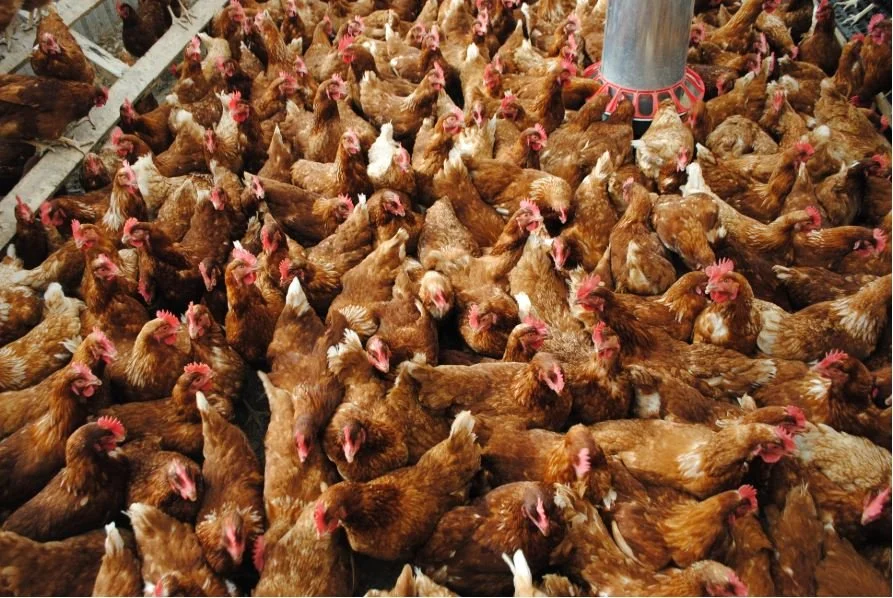
Dear Human,
Thank you for choosing pasture-raised eggs over any lesser standard. It truly means the world to us laying hens.
If you had chosen any other eggs, we’d spend nearly all, if not all, of our time trapped inside crowded buildings. Instead, we only have to spend 18 hours a day indoors. And look at that picture of the inside of one such building. It’s not crowded at all!
Yes, we still come from the same hatcheries as all other egg-laying hens. Our brothers, who can’t lay eggs, are still thrown into macerators as soon as they hatch. Paying a premium doesn’t save them from being ground alive. But at least we get to roam a pasture for 6 hours a day!
And yes, our beaks are still seared off at those same hatcheries. It’s painful, but it keeps us from injuring ourselves in the future. You see, in nature, we’d live in groups of about 10 to 15 and establish a pecking order. But on farms (even our “high welfare” farms), there are thousands of us, with too little space to act out our natural tendencies. So they take our beaks. It’s cheaper and easier than giving us enough space to live peacefully. And let’s be real: no farmer could profit with only 15 hens anyway.
Buying our eggs also doesn’t undo the damage caused by selectively breeding us to lay over 300 eggs a year, compared to the 10 to 15 of our wild ancestors. That strain causes disease, fractures, and organ failure. In massive barns, sick hens like us are rarely treated. We’re just killed.
But of course, you have to consume chicken eggs. Not for nutrition, of course, but what else could possibly replicate that flavor? It’s not as if people have created plant-based alternatives to nearly every egg-based recipe that exists. And even if they had, it’s not like they would be cheap, easy, or available online for free. We get it.
Thank you, dear human, for continuing to see us–living, sentient, feeling beings–as a product. It’s what we deserve. After all, we were bred into existence to serve as food and profit for your species. That’s why it makes sense that we’re killed at just 18 months old, when our egg production drops.
With sincere appreciation,

